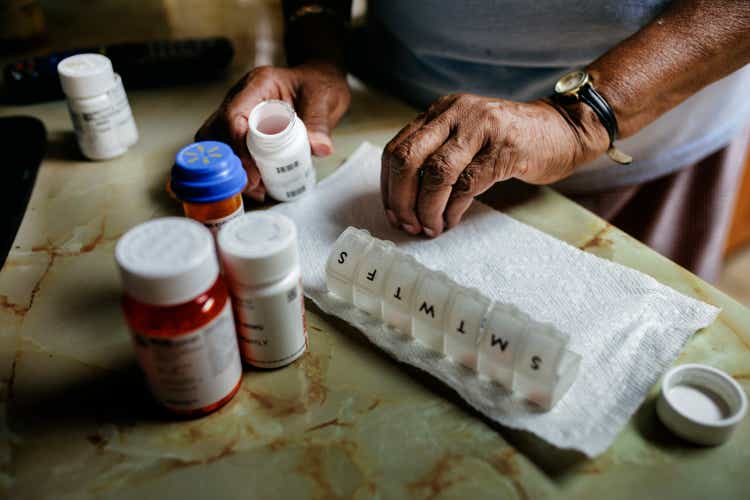
Willie B. Thomas/DigitalVision via Getty Images
The Biden administration will save $6B in 2026 as lower prices for the first 10 Medicare Part D drugs selected for negotiations under the Inflation Reduction Act take effect, government officials said Thursday.
Apart from savings to taxpayers, the officials estimated that Medicare recipients, mostly Americans aged 65 and over, will save $1.5B in out-of-pocket costs from prescription medicines that year.
The exact prices of the 10 medications negotiated in the first round are expected to be disclosed later today. They include Eli Lilly’s (LLY) diabetes drug Jardiance and Eliquis, a blood thinner by Bristol Myers Squibb (BMY) and Pfizer (PFE).
Other drugs in the first list include: Johnson & Johnson’s (JNJ) Xarelto and Stelara, Merck’s (MRK) anti-diabetic medication Januvia, AbbVie’s (ABBV) blood cancer therapy Imbruvica, AstraZeneca’s (AZN) diabetes/heart failure/kidney disease medication Farxiga, Novartis’ (NVS) heart medication Entresto, Amgen’s arthritis drug (AMGN) Enbrel, and Novo Nordisk’s (NVO) Fiasp.
The second cycle of negotiations will include as many as 15 additional drugs, the Centers for Medicare & Medicaid Services said in May.
The Inflation Reduction Act was signed into law in 2022, allowing Medicare to negotiate prices for certain expensive drugs. The new prices will go into effect in 2026. The policy has been met by resistance from the pharma industry, with court challenges so far unsuccessful.
